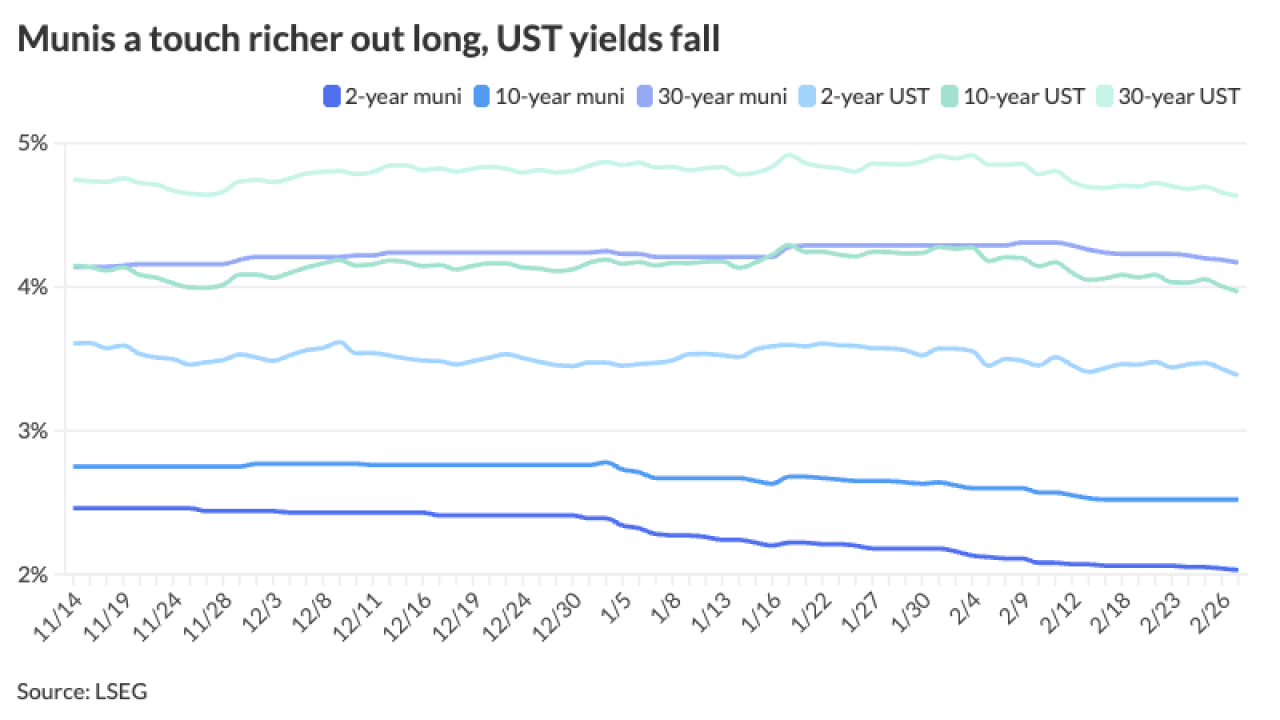
CHICAGO – Illinois Comptroller Susana Mendoza warned that the state is “coming apart at the seams” and blamed Gov. Bruce Rauner for the budget crisis that threatens the state’s investment-grade ratings.
“The state of Illinois is in the midst of the worst fiscal crisis in its history,” Mendoza said in a City Club of Chicago address Monday. “We need a budget. We need the stability and predictability that comes with a budget.”
The Democrat, a former Chicago city clerk and state lawmaker, took office in December after beating Rauner ally Leslie Geissler Munger for the state constitutional post that manages state bill payments and financial record keeping.
Amid the escalating feud between the Republican governor and Mendoza, the administration has dismissed her attacks as politically motivated and accused her of contributing to the state’s fiscal ills through her actions when she was a state representative. The Rauner administration now says Mendoza is trying to ferment a crisis and shut down government.
Mendoza opened her speech saying she planned to read a list of Rauner accomplishments compiled by her staff, only to then quip: “This page intentionally left blank.”
Mendoza then launched into her attack.
She laid out a grim picture of the fiscal and human toll of the budget impasse that is nearing the two year mark. According to its fiscal 2016 financial results, Illinois' general fund deficit grew by $2.7 billion to $9.5 billion and its net position of governmental activities eroded by $6.3 billion to hit a deficit of $131.6 billion.
The state faces rising interest costs on its borrowing and a $700 million tab on its growing unpaid bill backlog that peaked at a record $12.8 billion last week. With 12.8 million residents, the backlog equates to a $1,000 per person tab, she said. The backlog hit $13 billion on Tuesday, according to the comptroller's website.
The backlog is on course without budgetary changes to hit $20 billion in fiscal 2018, $27 billion in 2019, $34 billion in 2020, and $40 billion in 2021.
At the same time, social service providers are laying off staff or closing their doors while some state employees are forced to pay upfront for medical services because the state is so tardy in paying its bills.
“Our state is coming apart at the seams,” Mendoza said. “There is an actual cost to inaction and it’s expensive.”
Mendoza blasted Rauner for presenting a budget billions of dollars out of whack and for pulling his support from the bipartisan Senate budget fix known as the “Grand Bargain.”
In the absence of a budget agreement with Democrats he asked for a second year in a row for additional powers to dip into non general fund accounts and to cut areas otherwise off limits. Mendoza questioned why his departments could not then say during committee hearings where they would cut.
Rauner said he supports the “Grand Bargain” efforts but more work is needed on some pieces of the plan.
Mendoza said she agrees with Rauner on the need for a new state capital program as the state’s $31 billion program winds down, but warned it will be more expensive because the state will be forced to pay steeper interest rate penalties.
The state’s general obligation rating is now at the Baa2/BBB level and at risk of tumbling further. Part of that is the governor’s fault, she said, noting the six downgrades since he took office in January 2015.
“The bond rating agencies point to his failure to propose a balanced budget and specifically his willingness to hold the budget hostage,” she said.
Mendoza went on to directly quote a recent S&P Global Ratings commentary in which analysts said they believed the state’s fiscal crisis was a man-made byproduct of policy ultimatums placed on the budget process.
“That critique is not coming from me, a Democrat…..this is S&P,” she said. Mendoza cited ratings commentaries from several years ago that noted the state, while struggling under the weight of massive pension obligations and billions in overdue bills, had been moving in the right direction and paying down its backlog.
The state began to chip away at its $9 billion backlog after raising income tax rates in 2011. The partial expiration of those higher rates in 2015 has cost the state between $3 billion and $4 billion of lost annual revenue.
Rauner and the Democratic majorities in the legislature remain at loggerheads over Rauner’s demand that a budget fix with tax increases include items from his policy agenda. He insists the items like a local property tax freeze, term limits, and worker’s compensation reforms are needed to improve the state’s long-term economic prospects. Democrats believe they are too friendly to business.
Mendoza has come out swinging since taking office. That’s a departure from past comptrollers who were not shy about offering criticisms of state fiscal practices but issued them in more moderate tones.
The speech also marked a sharp escalation of the feud between Mendoza and Rauner over how the state manages it cash flow and from what funds it draws money to pay its bills, an issue that was not in question when Munger was in office.
Their swiping has pushed sparring between Rauner and House Speaker Michael Madigan, D-Chicago to the backburner.
Mendoza worked under Madigan in the House and the speaker backed her candidacy in November’s special election to fill the remainder of Judy Baar Topinka’s term after her death following the November 2014 election. Rauner appointed Munger to the post, but Democrats passed legislation requiring the 2016 special election.
After Munger’s loss, Rauner named her a deputy governor and faced criticism for initially paying her from a fund that covers state employee health care. The administration said it was a mistake that has since been corrected.
Just ahead of the Mendoza speech, the Rauner administration issued a press release calling on Mendoza’s office to “stop cutting payments the state’s most vulnerable.” The administration accused her office of a “disturbing” decision that cuts allotments for bills sent to her office with a high priority “hardship” status.
In her speech and a press release a short time later, Mendoza attacked what she said was the governor’s use of $112 million from the healthcare provider relief fund to cover consultants and technology contracts for computer software.
The administration fired back.
“It’s pathetic and hypocritical that a Springfield insider who helped create the very mess we are now in is abdicating responsibility and pointing fingers,” a statement read. “Comptroller Mendoza will literally say or do anything to distract from the fact that she used taxpayer dollars to buy herself an SUV while cutting funding to human services.”
“Like most of Comptroller Mendoza’s wild accusations, her latest defies reality. The fact is that the expenses she referenced are in support of the Medicaid program and a large portion of the expense was covered by federal matching dollars,” the statement read.
Market participants and political leaders have begun questioning how long the state can hold on to its investment grade ratings if the impasse continues. A one notch downgrade would sink its moral obligation debt to junk.
In addition to raising its future borrowing costs, the state would pay higher costs on its $600 million of 2003 floating-rate debt. It’s a small piece of a $26 billion GO portfolio. The state’s bonds are trading in the 200 basis point range above the triple-A benchmark.
Under terms of the direct placement reached last year that remarketed the paper, the state pays a 2.85% fee that increases to 3.35% if one of its ratings drops to BBB-minus. If the state falls to junk the fee increases to 5.35%. Under new terms negotiated on five swaps last year that were negatively valued at $153 million, terminations are triggered at junk level on four while the trigger is set one notch lower on one.





